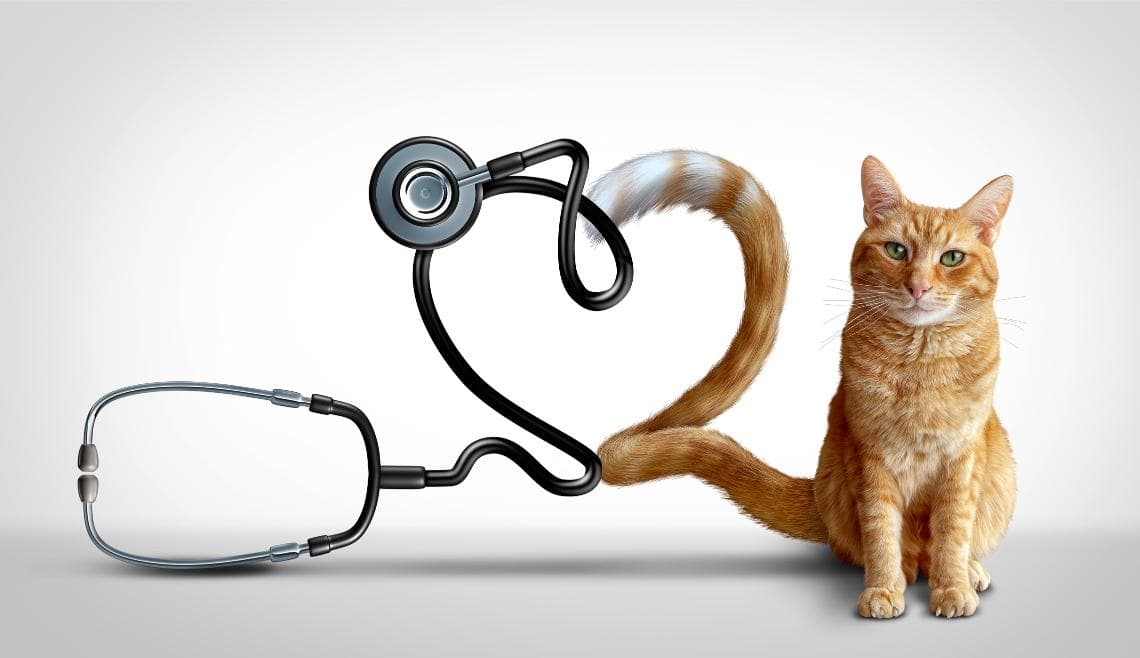Show Your Pet Love: Heart Health Tips for Your Furry Friends

At Adobe Animal Hospital & Laser Surgery Center, we know that taking care of your pet’s heart is one of the greatest ways to show them love. Just like humans, pets can experience heart issues as they age, making heart health an essential focus for pet parents. From a heart-healthy diet to regular check-ups, these tips will help keep your pet’s heart beating strong and steady.
1. Feed Them a Heart-Healthy Diet
Good nutrition is a powerful way to support heart health in pets. A balanced diet provides the nutrients they need and helps prevent obesity—a significant risk factor for heart disease in pets.
- Choose high-quality pet food: Opt for brands with minimal fillers and a good balance of proteins, fats, and carbohydrates.
- Avoid excess salt: Like humans, too much salt can contribute to heart problems. Check labels and avoid feeding your pet salty human foods.
- Include heart-friendly ingredients: Foods rich in Omega-3 fatty acids, like fish oils, can help promote a healthy heart.
Making sure your pet’s diet supports their heart health can be one of the simplest and most effective ways to keep them healthy.
2. Schedule Regular Vet Check-Ups
Routine check-ups are essential for identifying heart disease in pets early. Your vet can spot symptoms and discuss preventive measures tailored to your pet’s needs.
- Yearly wellness exams: Make annual visits to the vet a priority, especially for senior pets.
- Heart-specific screenings: Ask your vet about screenings such as echocardiograms or blood pressure checks, particularly if your pet is at risk for heart disease.
Regular check-ups can catch early signs of heart disease, ensuring your furry friend gets the care they need.
3. Keep Your Pet Active
Exercise is excellent for keeping your pet’s heart strong. Regular physical activity helps manage weight, reduces stress, and strengthens cardiovascular function.
- Daily walks: Dogs benefit from walks, which keep their bodies and hearts fit.
- Play sessions: Indoor cats love chasing toys, which keeps their hearts healthy.
- Interactive games: Puzzle toys and games encourage movement, which is beneficial for pets of all ages.
Keeping your pet active contributes to a healthy heart, whether a brisk walk or a playful pounce.
4. Watch for Warning Signs of Heart Disease
Knowing the signs of heart disease in pets is essential for early intervention. Here’s what to keep an eye on:
- Coughing: Frequent coughing, especially after exercise, could indicate heart issues.
- Difficulty breathing: Labored or rapid breathing may suggest heart disease.
- Fatigue: Pets with heart issues may tire easily or seem less energetic.
- Fainting or collapsing: Contact your vet immediately if your pet faints or collapses.
By recognizing these symptoms, you can seek help early and potentially improve your pet’s prognosis.
5. Maintain a Healthy Weight
Carrying extra pounds puts added strain on your pet’s heart, and increases the risk of heart disease. Helping your pet maintain a healthy weight is one of the best things you can do for their heart.
- Monitor portion sizes: Follow feeding guidelines and avoid overfeeding.
- Limit treats: Treats are okay in moderation, but overindulgence can lead to weight gain.
- Encourage playtime: Regular play is a fun way to help your pet stay trim.
Keeping your pet at a healthy weight supports heart health and helps them live a longer, more active life.
6. Consider Supplements for Heart Health
For some pets, supplements can offer additional support for a healthy heart. Always check with your vet before adding supplements to your pet’s routine.
- Omega-3 fatty acids: These support cardiovascular health and reduce inflammation.
- Taurine: An amino acid essential for heart function, especially in cats.
- Coenzyme Q10: This antioxidant is beneficial for heart health in some pets.
Supplements aren’t necessary for every pet, but they can provide additional heart health benefits under your vet’s guidance.
7. Provide a Low-Stress Environment
Stress affects heart health, so creating a calm, comforting environment for your pet can positively impact their well-being.
- Provide a cozy space: Make sure they have a comfortable, quiet area to relax.
- Engage in bonding time: Spend time each day engaging with your pet through petting or gentle play.
- Avoid loud noises: Minimize stressful noises, especially if your pet is sensitive to sounds.
A peaceful environment can help keep your pet’s heart healthy, promoting calmness and reducing strain on their cardiovascular system.
A Heartfelt Commitment to Your Pet’s Health
Keeping your pet’s heart healthy is one of the best ways to show them love, and Dr. Harry Sekhon and our team are here to support you every step of the way. If you have questions or want to schedule a wellness visit or heart health check-up for your furry friend, call us today—because a healthy heart means more happy moments together!
